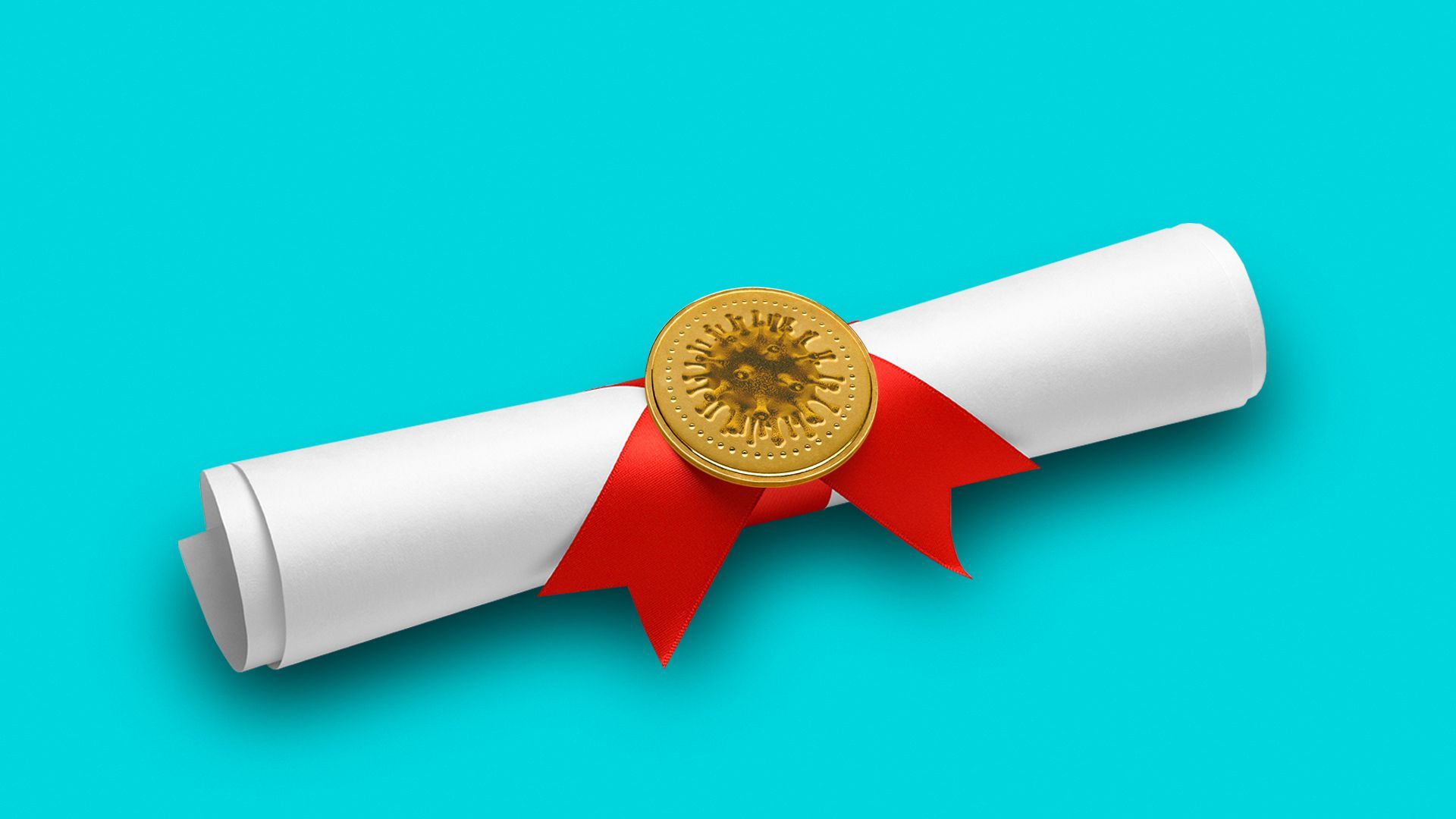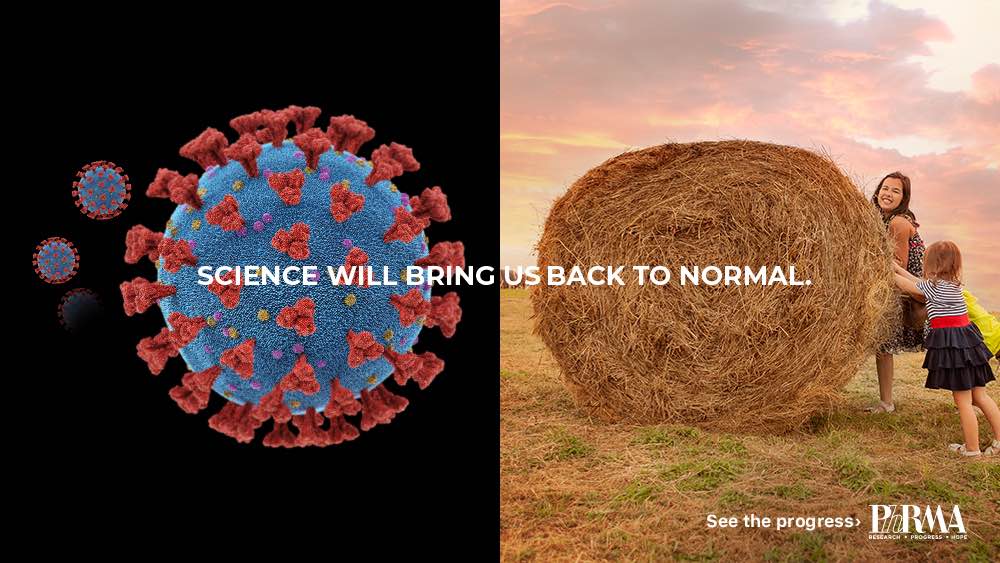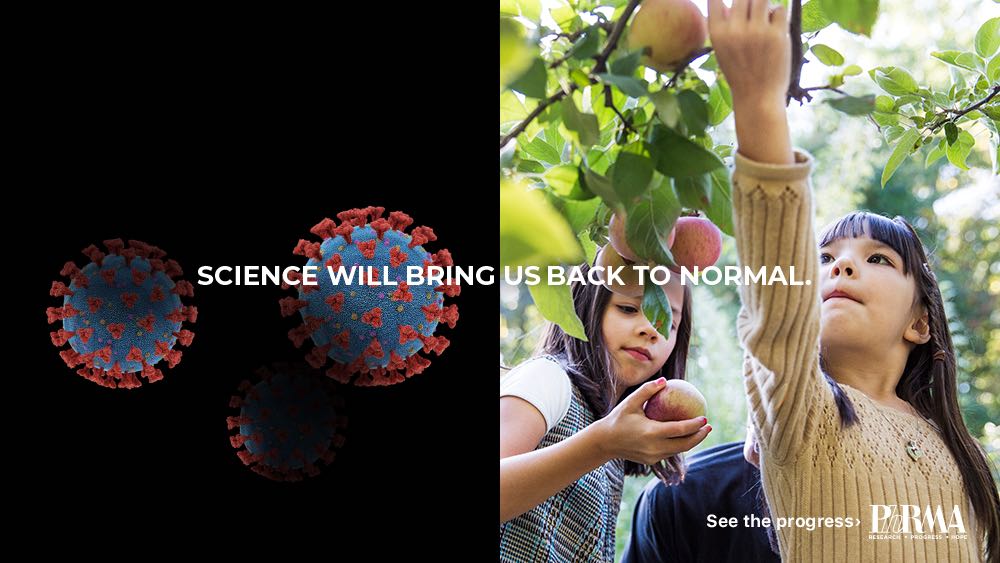| | | | | | | Presented By PhRMA | | | | Vitals | | By Caitlin Owens ·Oct 16, 2020 | | Good morning, and happy Friday. Today's word count is 982, a 4-minute read. | | | | | | 1 big thing: How colleges have learned to combat the coronavirus |  | | | Illustration: Annelise Capossela/Axios | | | | Some colleges are creating a blueprint for how to safely remain open during the coronavirus pandemic, relying heavily on regular testing and doing what they can to curb parties and other large gatherings. Why it matters: College reopenings were tied to several big outbreaks, and young adults will likely be among the last to receive a coronavirus vaccine. So colleges and students need figure out how to live amid the virus. How it works: Basic health measures, especially testing and contact tracing, have been the key to colleges' successes. - "The amount of money colleges and universities will spend on testing is likely to dwarf every projection we would have made a few months ago," Terry Hartle, senior vice president of the American Council on Education, told NPR.
Yes, but: More than two out of every three colleges offering in-person classes don't have a clear testing plan or are only testing high-risk students, per an NPR analysis. Many experts say that isn't enough to prevent outbreaks. - Among schools with in-person classes and more than 5,000 undergraduates, only 25% are doing surveillance testing, and only 6% are regularly testing all students.
- And testing is almost meaningless if students ignore the results of their tests, as some did at the University of Illinois, or throw social distancing guidelines out the window.
The big picture: "We weren't able to do this as a country, but it's totally doable in the university context," Vanderbilt University chancellor Daniel Diermeier said. - At Vanderbilt, the majority of classes are in-person, and spread of the virus has been minimal.
The University of Arizona saw a spike of 880 positive tests in one week in mid-September, but has since been able to bring that number down to 18 this past week, partially via a two-week shelter-in-place policy. Go deeper. |     | | | | | | 2. Everyone loves pre-existing conditions protections |  Reproduced from KFF; Chart: Axios Visuals The vast majority — nearly eight in 10 — of Americans don't want to the Supreme Court to overturn the Affordable Care Act's pre-existing conditions protections, according to a new KFF poll. Yes, but: Only 58% of Americans say the same about the law in its entirety, with the gap between the two positions largest among Republicans. Between the lines: The heart of the ACA is its pre-existing conditions protections, and other major pieces of the law exist to make health coverage affordable for everyone while ensuring sick people can get health care. - Although there are other ways to protect people with pre-existing conditions, none of those proposed by Republicans have given the same level of protection, and other ideas require more federal spending.
Why it matters: The future of the ACA is suddenly threatened, once again, by the Supreme Court, and that's made the law front and center heading into the 2020 election. There isn't a very realistic scenario in which the law's pre-existing conditions protections survive, but the rest of it falls. |     | | | | | | 3. The latest in the U.S. |  Data: The COVID Tracking Project; Note: Does not include probable deaths from New York City; Map: Andrew Witherspoon/Axios The U.S. reported 63,172 new coronavirus cases on Thursday, the nation's highest daily count since July 31, when it saw more than 66,000 new cases in a single day, according to data from the COVID Tracking Project. Joe Biden said at an ABC town hall Thursday night that he would take a potential coronavirus vaccine if one became available by the end of the year "if the body of scientists" says it's ready. President Trump said during a town hall event aired on NBC News Thursday that he does not recall being tested for the coronavirus before the first presidential debate on Sept. 29. Sen. Kamala Harris (D-Calif.) will pause her travel through Sunday after her communications director tested positive for the coronavirus, the Biden campaign announced Thursday. Former New Jersey Gov. Chris Christie (R) told the New York Times on Thursday that he spent several days in the intensive care unit after checking into the hospital with COVID-19, and that he was "wrong not to wear a mask" at the White House. Trump again criticized Anthony Fauci, the government's top infectious disease expert, during a campaign rally in North Carolina on Thursday, claiming without evidence that the NIAID director is "a Democrat," and accusing him of downplaying the coronavirus. |     | | | | | | A message from PhRMA | | Biopharmaceutical science fights against COVID-19 | | |  | | | | The biopharmaceutical industry is leading the way in developing new vaccines and treatments for COVID-19. The background: Biopharma companies across the U.S. are committed to developing solutions to help diagnose, treat and prevent the coronavirus. Find out more from the video. | | | | | | 4. The latest worldwide |  The pandemic has come storming back in Europe, and hope of a return to normality is being replaced by a much more ominous prospect: the return to lockdown, Axios' Dave Lawler reports. The big picture: Case counts in countries like France and Spain have skyrocketed past the numbers seen during the spring peak. While that's partially due to more widespread testing, it's now clear that deaths are climbing too. In the first two weeks of August, a total of 668 people died of coronavirus across Spain, France, the U.K., Italy and Germany — remarkably low given the U.S., which has a similar population, was averaging roughly twice as many per day during that time. - Fast forward two months, to the first two weeks of October, and those countries have combined for 4,316 deaths — 6.5 times higher.
- Spain (1,622 deaths), France (1,081) and the U.K. (1,012) have been hit hardest, but even Italy (401) and Germany (200) are recording more than three times as many deaths as they were two months ago.
- Flash back to the first two weeks of April, though, and the five countries' combined death total was 44,771 — 10 times what they're recording now.
Sky-high case counts and a reluctance to impose full lockdowns mean the question is less whether these countries can quickly return to the relative calm of August, than whether they can avoid a return to April's brutal reality. Go deeper. |     | | | | | | 5. Dog of the Week! | | Vaquero. Photo: Dara Green Meet Vaquero! - "My name is Spanish for 'Cowboy' and I understand both Spanish and ... English. I am told that I am a standard poodle, and have six years. I am very obedient. My dad will not allow me to sit on the couch, but my butt is tall enough to do so, but I always make sure that I keep two feet on the ground, I'm OK!
- "The COVID has been a blessing for me because my mom and dad spend every day with me, and I love it!"
Keep sending your dogs! |     | | | | | | A message from PhRMA | | Biopharma is progressing in the fight to beat COVID-19 | | |  | | | | Biopharmaceutical companies across the country are collaborating in new ways to help defeat the coronavirus. The results: In a matter of weeks they've gone from potential treatments to antibodies and antivirals that have shown positive results. See how science can help us get back to normal. | | | | | | Axios thanks our partners for supporting our newsletters.
Sponsorship has no influence on editorial content. Axios, 3100 Clarendon Blvd, Suite 1300, Arlington VA 22201 | | | You received this email because you signed up for newsletters from Axios.
Change your preferences or unsubscribe here. | | | Was this email forwarded to you?
Sign up now to get Axios in your inbox. | | | | Follow Axios on social media:    | | | | | |








No comments:
Post a Comment